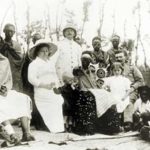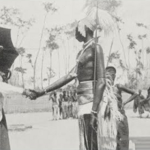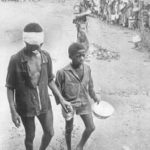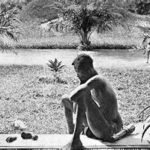The Early Years Of Belgian Rule (1916-1940)
We haveseen that Rwidegembya sent his son Rwagataraka to Kinyaga to administer the Impara region in 1911, not long after the establishment of German civil administration in Rwanda. Initially, the young chief left the region south of the Mwaga River to his father’s delegates, of which the most prominent was Seekabaraga. He established his main residence at Ishara peninsula in northem Impara (present Kagano commune), and in that area he moved to appoint his own clients to hill chief positions. Wartime conditions soon fortified his power. In 1914, after war had broken out in Europe, the German administration in Rwanda organized a regiment of Rwandan soldiers, called the Indugaruga. Rwagataraka and one of his clients, Gisazi, chief of Bugarama region, were each authorized to recruit men who would receive training in the use of guns and other basic military knowledge. But in April 1916, Belgian-led troops crossed the Rusizi River and swept across Rwanda. After putting up a brief resistance, German forces retreated, leaving Rwanda to the Belgians. Rwagataraka and his Indugaruga initially also retreated. But once Belgian authority had been established, after the departure of the Germans, Rwagataraka approached the victors, requesting reinstatement to his post. This was granted, and before two months had passed Rwagataraka had retumed to his command in Impara. His unchallenged preeminence, however, was yet to be confirmed.






